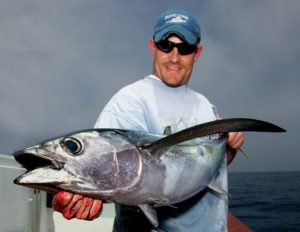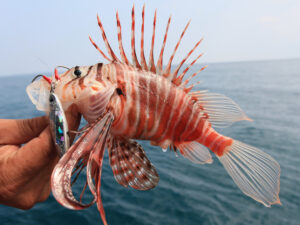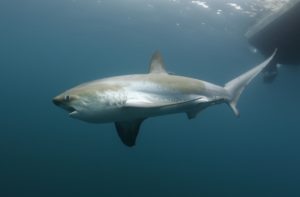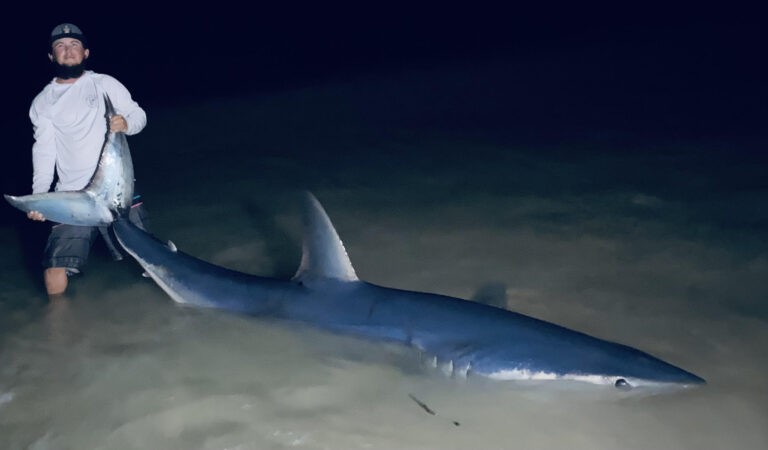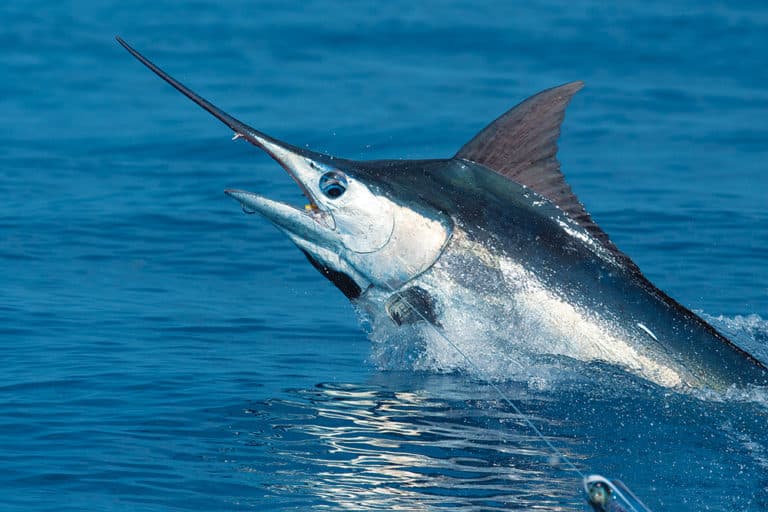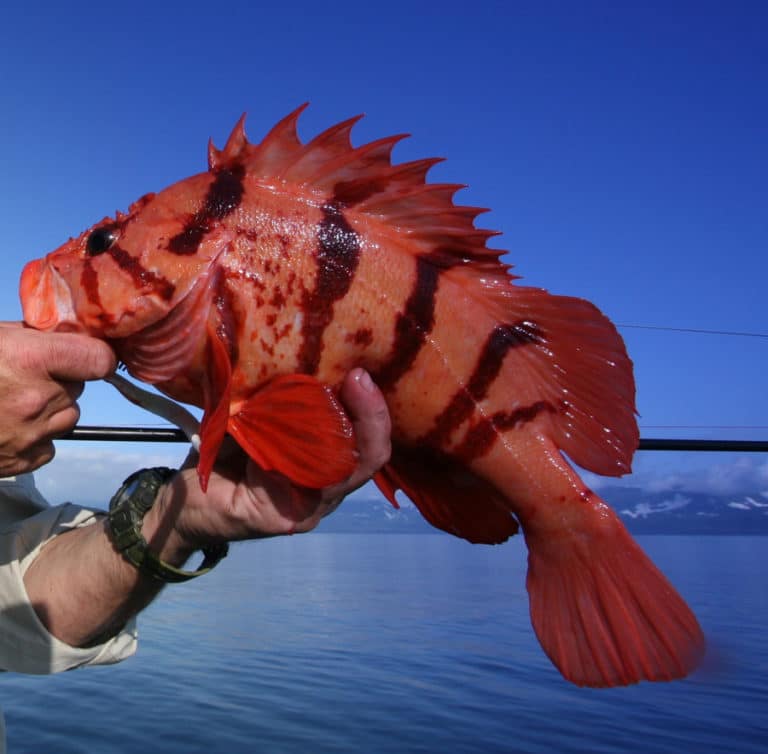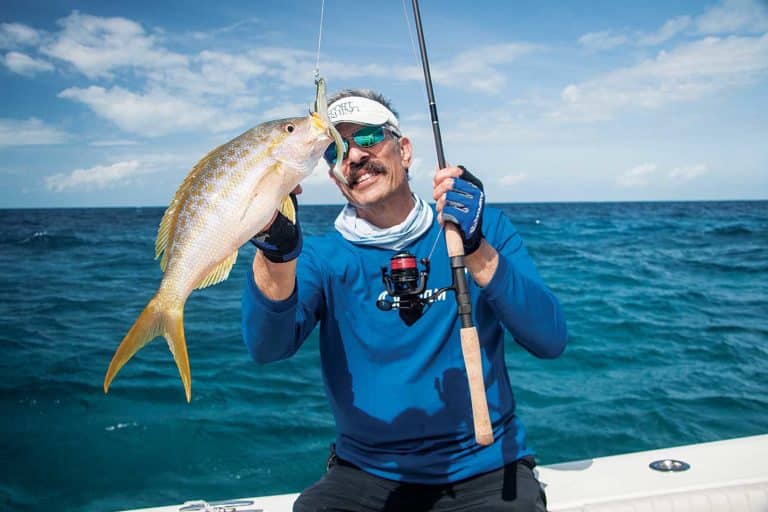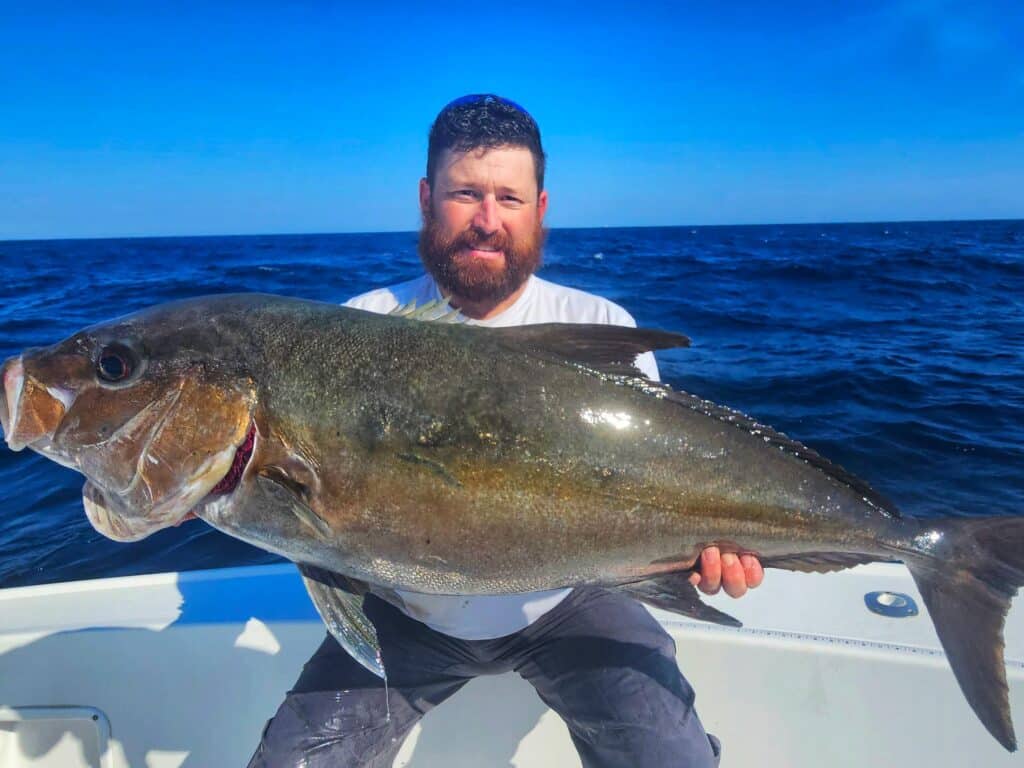
A jack commonly caught in Costa Rica and the Gulf of Mexico was recently landed off the coast of North Carolina. Officials at the North Carolina Division of Marine Fisheries established a new state record for the species: an Almaco Jack (Seriola rivoliana).
Angler Matt Frattasio, of Massachusetts, caught the 26-pound, 15.6-ounce fast-growing fish near the D Wreck off Morehead City in early November. He was aboard Riptide Charters fishing in 80 feet of water, baiting with a live menhaden on 50-pound gear. There was no previous state record in North Carolina for almacos.
Frattasio’s fish measured 36.4 inches (fork length) and had a 26-inch girth. The fish was weighed and identified by fisheries staff at the Division of Marine Fisheries Headquarters in Morehead City. Almaco jacks are part of the Seriola genus (amberjacks) — not surprisingly, they look similar to an amberjack.
Almaco Jack or Amberjack?
Anglers can have a tough time differentiating the two. Here’s the trick: Almacos are deeper-bodied and less elongated than amberjacks. Also, check the dorsal fins. That second dorsal is higher than the first dorsal on amberjack, but it’s nearly twice as tall as the first dorsal on almaco jacks.
Record Almaco Jack Catches
In Georgia, the current state record almaco is just over 7 pounds, while Florida’s state record tops out at 35 pounds, 9 ounces. The all-tackle world record stands tall at 132 pounds, caught in 1964 in La Paz, Baja California, Mexico. Most IGFA men’s line-class records for the species hail from Costa Rica and Panama.
Still, some almaco jack world records sit completely vacant. Part of that might be because they’re misidentified or possibly it’s that anglers fast-track the great-tasting fish straight into the cooler. At least five women’s line-class records are empty, most of them for fly tackle. The All-Tackle Length fly and junior records are also wide open.
For other instances of warm-water fish catches in states farther north, check out Connecticut’s tarpon, Maryland’s barracuda, New Jersey’s king mackerel and Washington’s dorado.


